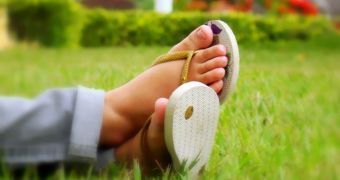Researchers always believed that people excited about their upcoming vacations tended to remain happier about it some time after they returned. Investigations had revealed that people with upcoming days off were a lot more positive than those whose vacations were still months away. But a new study has revealed that this is the entire extent of this feeling. In other words, people returning from vacation have roughly the same level of happiness as their colleagues who worked while they were off, AlphaGalileo reports.
For this research, scientists at the NHTV Breda University of Applied Sciences focused on answering four main questions. They wanted to know first and foremost if vacationers were happier than their colleagues that remained at work, and also to find out if taking a trip indeed boosted happiness. Then they sought to understand precisely how long people remain happy after a vacation, if taking a trip indeed has a positive effect. Lastly, the researchers wanted to discover what were the roles played by the length of the time off, and the stress people experienced in their vacations, on the final results.
The team, which was led by expert Jeroen Nawijn, from the NHTV and the Erasmus University, looked at more then 1,530 Dutch adult workers, of whom 974 went on vacation as the study progressed. One of the primary details the group focused on was whether those who went on a trip indeed got a boost in happiness, and, if so, for how long. Nawijn argues that a strong correlation to support this indeed exists, but adds that it's the anticipation which drives people's positive emotions. The length of time covered by this emotion is just as long as the vacation itself, not longer, as previously thought.
It was, however, revealed that very relaxing vacations could indeed boost happiness for a long period of time, especially in the first two weeks after the workers returned to their jobs. The effect disappeared completely within 8 weeks. Details of this investigation appear in the latest online issue of the respected Springer journal Applied Research in Quality of Life. Nawijn, who was the author of the paper, says that the conclusions should not surprise anyone, given the fact that workers returning from their vacation fall back onto their routines fairly quickly.

 14 DAY TRIAL //
14 DAY TRIAL //